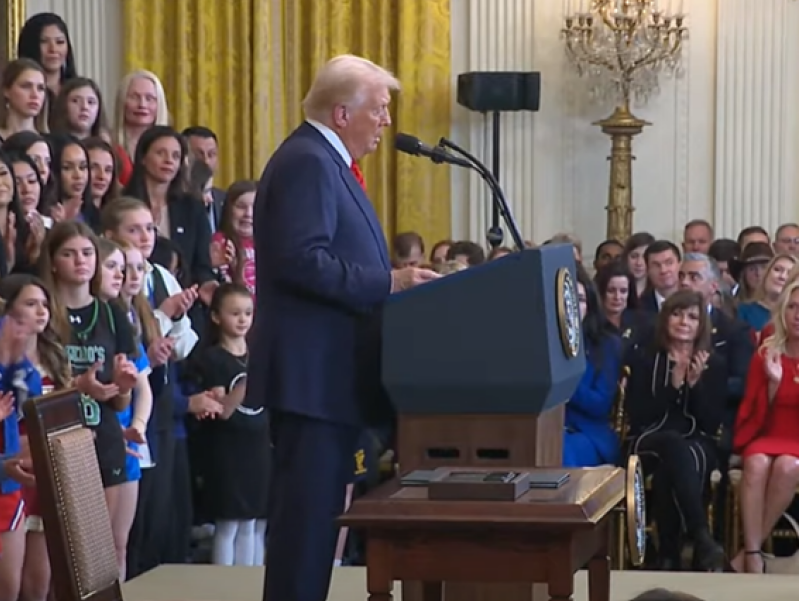
WASHINGTON, D.C. — In a decisive move to reshape the landscape of women's athletics, President Donald Trump has signed an executive order barring male athletes from competing in female sports categories. The order, titled “Defending Women’s Sports and Restoring Biological Integrity”, directs federal agencies to withdraw funding from educational institutions that allow biological males to compete in women’s sports, citing fairness, safety, and the original intent of Title IX.
A Firm Stand on Women’s Sports
The order comes amid growing national debate over transgender athletes' participation in women’s sports, a controversy that has pitted inclusivity efforts against concerns for competitive fairness and athlete safety. In the executive order, President Trump condemned policies that allow men to enter female sports categories, calling them “demeaning, unfair, and dangerous.”
“Women and girls deserve a level playing field,” the order states. “They should not be forced to compete against men, nor should they have to surrender their privacy and dignity in locker rooms or other athletic spaces.”
The Department of Education has been tasked with enforcing Title IX protections, ensuring that women's sports remain exclusive to biological females. Schools and athletic associations that fail to comply could face severe penalties, including the loss of federal funding.
Legal Precedent and Federal Action
The executive order references multiple federal court rulings that have upheld sex-based distinctions in sports. A Kentucky federal court ruling (Tennessee v. Cardona, 2024) asserted that ignoring biological differences between the sexes deprives women of fair competition. Similarly, a Kansas district court decision (Kansas v. U.S. Dept. of Education, 2024) reinforced Congress' intent to safeguard female athletes in education.
As part of the enforcement measures, the Department of Justice (DOJ) has been directed to provide resources to support legal actions against institutions violating this policy. Federal agencies will also review and potentially rescind grants to schools and athletic programs that fail to comply.
International and Diplomatic Implications
The executive order extends beyond domestic policy, instructing the State Department to oppose international sporting policies that allow gender identity-based participation in female athletics. The order specifically calls for the United States Olympic Committee and international sports bodies to return to sex-based eligibility criteria.
Additionally, the Department of Homeland Security has been tasked with reviewing immigration policies related to athletes, ensuring that foreign male competitors cannot enter the U.S. under the guise of competing in women’s sports.
A Political and Cultural Flashpoint
The move has already drawn strong reactions from both sides of the aisle. Supporters of the order, including female athletes and advocacy groups, have praised it as a critical step in defending women’s rights in sports.
Former NCAA swimmer Riley Gaines, an outspoken critic of transgender participation in women’s sports, applauded the decision, stating:
“This is a victory for fairness, safety, and the integrity of women’s sports. No female athlete should lose opportunities to male competitors.”
However, LGBTQ+ advocacy organizations and progressive leaders have condemned the order, calling it discriminatory and exclusionary. The Human Rights Campaign (HRC) labeled it “a blatant attack on transgender Americans,” vowing to challenge it in court.
What Comes Next?
With this executive order now in effect, enforcement measures will likely unfold in the coming months. Legal challenges are almost certain, setting the stage for a broader national legal battle over the definition of sex in education and sports.
As the debate continues, the executive order cements Trump’s position as an advocate for sex-based distinctions in women’s athletics, reinforcing a policy stance that is expected to be a major talking point in the upcoming election cycle.
One thing is clear: the battle over gender identity and sports policy is far from over.







